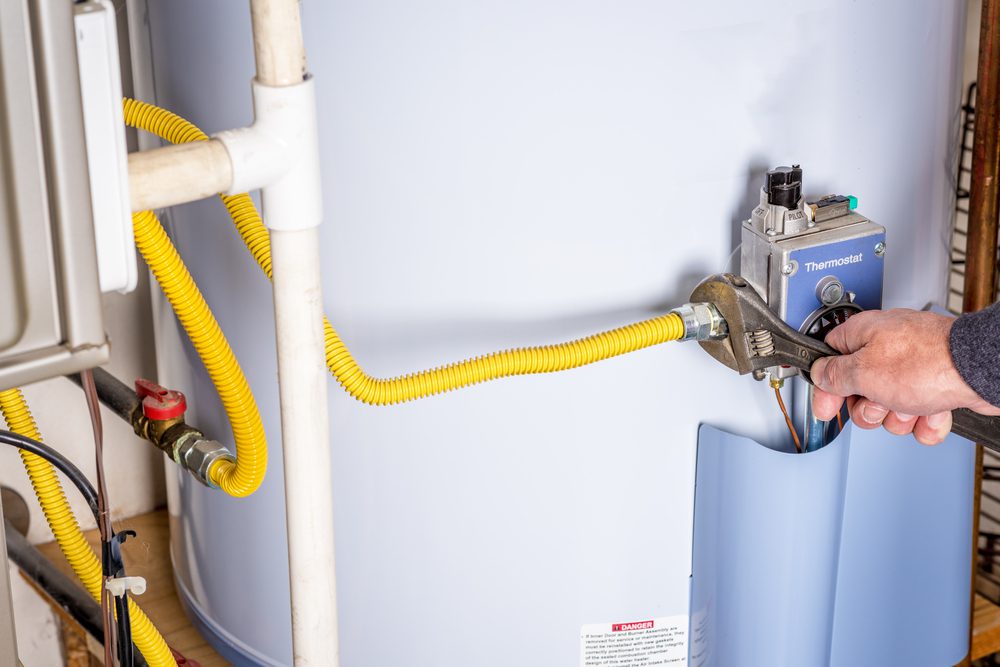Dealing With Standard Water Heater Problems
Dealing With Standard Water Heater Problems
Blog Article
They are making several good points about Common Problems with Your Home Water Heater in general in the content beneath.

Visualize starting your day without your regular hot shower. That already sets an inadequate tone for the rest of your day.
Every house requires a dependable water heater, but just a few recognize just how to handle one. One simple means to maintain your water heater in leading form is to check for faults routinely and also fix them as quickly as they show up.
Bear in mind to switch off your water heater before sniffing around for mistakes. These are the hot water heater faults you are more than likely to run into.
Water as well hot or too chilly
Every hot water heater has a thermostat that establishes exactly how warm the water gets. If the water coming into your home is too warm despite establishing a convenient optimum temperature, your thermostat may be faulty.
On the other hand, as well cold water might be due to a stopped working thermostat, a busted circuit, or improper gas circulation. For example, if you use a gas water heater with a busted pilot burner, you would get cold water, even if the thermostat is in best problem. For electrical heating units, a blown fuse might be the wrongdoer.
Inadequate warm water
Water heaters come in many sizes, relying on your warm water needs. If you lack hot water before every person has actually had a bath, your water heater is also small for your family size. You should take into consideration mounting a bigger water heater tank or opting for a tankless hot water heater, which occupies much less area and is extra long lasting.
Odd noises
There go to least 5 type of noises you can learn through a water heater, but one of the most typical analysis is that it's time for the hot water heater to retire.
Firstly, you should know with the normal seems a hot water heater makes. An electrical heater may seem different from a gas-powered one.
Standing out or banging noises generally mean there is a slab of debris in your containers, and also it's time to cleanse it out. On the other hand, whistling or hissing audios might merely be your shutoffs letting some pressure off.
Water leaks
Leakages might come from pipes, water links, valves, or in the worst-case scenario, the container itself. With time, water will corrode the tank, as well as locate its way out. If this takes place, you require to change your water heater immediately.
Nonetheless, before your modification your entire container, make certain that all pipelines remain in area which each shutoff functions flawlessly. If you still require help recognizing a leak, call your plumber.
Rust-colored water
Rust-colored water indicates one of your water heater parts is worn away. It could be the anode rod, or the container itself. Your plumber will certainly be able to determine which it is.
Warm water
No matter how high you set the thermostat, you won't get any type of warm water out of a heating system well past its prime. A hot water heater's performance may reduce with time.
You will also obtain warm water if your pipelines have a cross link. This indicates that when you switch on a tap, hot water from the heater flows in along with normal, cold water. A cross link is easy to spot. If your warm water faucets still run after closing the hot water heater valves, you have a cross connection.
Discoloured Water
Rust is a major root cause of filthy or discoloured water. Deterioration within the water tank or a falling short anode pole could cause this discolouration. The anode rod protects the container from rusting on the within as well as should be checked yearly. Without a pole or an appropriately working anode rod, the hot water quickly corrodes inside the tank. Call a specialist water heater specialist to determine if replacing the anode rod will certainly deal with the trouble; if not, replace your water heater.
Conclusion
Ideally, your water heater can last 10 years before you need a change. However, after the 10-year mark, you may experience any of these mistakes extra routinely. At this point, you should include a brand-new water heater to your budget.
How To Troubleshoot 3 Common Water Heater Problems in Twin Cities
The Water Heater Is Leaking
A leaky cold water inlet valve A loose pipe fitting A leaky temperature and pressure relief valve A corroded anode rod A cracked tank Turn Off Your Water Heater:
Shut off your gas water heater by turning the gas valve on the unit to the “OFF” position. Shut off your electric water by switching its power off at your electrical panel. Look for a two-pole breaker labeled “water heater” and turn it to the “OFF” position. Move the ball valve connected to the water heater to be perpendicular to the piping at a 90° angle. Look for the Leak:
Depending on whether the water is coming from the tank's top or bottom, you’ll want to look for the leak in different locations.
If the leak comes from the top of the tank, carefully look for water escaping from the cold water inlet valve or loose pipe fittings. Rusted hot and cold water valves can have loose connections with the tank, with water leaking out of them.
https://mspplumbingheatingair.com/blog/how-to-troubleshoot-3-common-water-heater-problems
I'm certainly very taken with Common Problems with Tank Water Heaters and I really hope you appreciated the entire piece. Sharing is caring. You never know, you may just be helping someone out. We enjoy reading our article about Water Heaters Problems.
Learn More Report this page